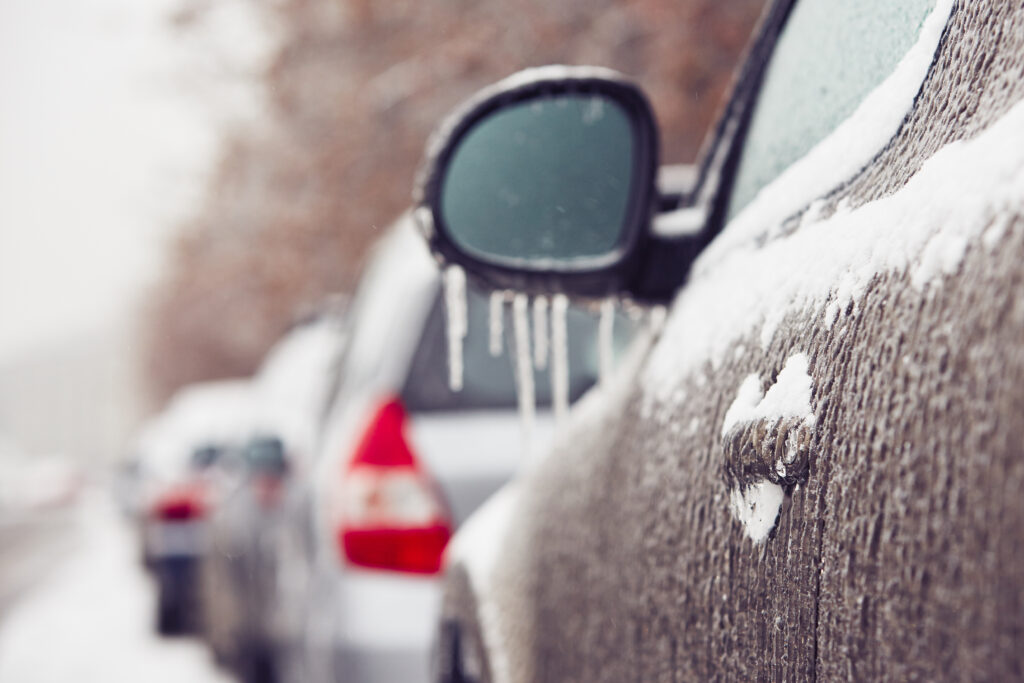Get Your Vehicle Ready for Colder Weather
As the temperatures drop in Pennsylvania, your vehicle feels the chill just as much as you do. Cold weather can be tough on cars, from sluggish batteries to low tire pressure, and the last thing anyone wants is to be stranded in freezing conditions. Taking a few preventative steps now can help ensure your car runs smoothly, safely, and reliably all winter long.

Cold Weather and Your Vehicle: What You Should Know
- Battery Performance Drops in the Cold
Car batteries work harder in the winter. At 32°F, your battery loses about 35% of its strength, and at 0°F, it loses 60%. Combine that with the extra demand from heaters, defrosters, and wipers, and it’s easy to see why dead batteries are one of the top winter breakdown causes. - Tire Pressure Falls as Temperatures Drop
For every 10-degree drop in temperature, your tires can lose about 1 PSI (pound per square inch) of pressure. Underinflated tires mean less traction on slick, icy roads and reduced fuel efficiency. Checking and topping off your tire pressure regularly is one of the simplest, most effective safety checks you can do. - Oil Thickens in the Cold
Cold weather makes engine oil thicker, which means it doesn’t flow as easily. This can cause more engine wear at startup. Switching to the manufacturer-recommended winter-grade oil can help protect your engine in colder conditions. - Fluids Freeze Faster Than You Think
Coolant, windshield washer fluid, and even transmission fluid can be affected by extreme temperatures. Make sure they’re topped off and rated for winter weather to prevent damage or visibility issues.
Tips to Get Ready for the Cold
1. Test Your Battery
Stop by Bachman’s Auto Repair for a quick battery test. If your battery is weak, replacing it before the cold sets in is far better than being stuck in a parking lot with a car that won’t start.
2. Check Your Tires
Winter tires or all-weather tires provide better grip in snow and ice. Even if you stick with all-season tires, ensure the tread depth is safe (at least 4/32” for winter driving) and keep them properly inflated.
3. Inspect Your Brakes
Icy and snowy conditions make stopping distances longer. Brakes that feel “good enough” in the fall may not be safe when the roads get slippery.
4. Keep Fluids Winter-Ready
Check your antifreeze level, and make sure your windshield washer fluid is winter blend — summer fluid can freeze on your windshield in below-freezing temps.
5. Replace Wiper Blades
Wiper blades wear out faster than most drivers realize. If they streak, squeak, or skip, swap them out. Consider winter wipers designed to handle ice and snow.
6. Pack a Winter Emergency Kit
A blanket, flashlight, jumper cables, ice scraper, and some non-perishable snacks can make a big difference if you’re ever stuck on the side of the road.
TRUE or FALSE?
You should let your car “warm up” for 10–15 minutes before driving in the winter.
FALSE! Modern fuel-injected engines don’t need long warm-ups. Idling too long just wastes gas and increases emissions. A minute or two is plenty — just enough for the oil to circulate. The best way to warm your car is by driving it gently.
Fun Fact:
In extremely cold conditions, gas can contract — which means your fuel gauge might temporarily read lower than it actually is until things warm up again!
Stay Ahead of the Cold with Bachman’s Auto Repair
Winter driving doesn’t have to be stressful. A little preparation goes a long way in keeping you safe, saving money on fuel, and avoiding costly repairs. At Bachman’s Auto Repair, we can help with everything from battery tests and brake checks to winter tire installation and fluid top-offs.
Schedule your pre-winter inspection today and head into the season confident that your vehicle is ready for whatever Pennsylvania weather throws your way.
